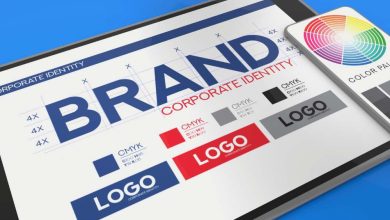When shopping for a used vehicle, you might come across the term “Cat S” in car listings. A Cat S car refers to a vehicle that has been written off by an insurance company due to structural damage but can be repaired and returned to the road. The allure of a Cat S car often lies in its lower price tag, but prospective buyers must weigh the benefits against potential risks. In this blog, we’ll explore what exactly a cat s car is, the pros and cons of buying one, and whether it’s a good investment for you.
What Does Cat S Mean?
The term Cat S car comes from the UK insurance write-off categories, where “S” stands for “structural damage.” This means that the car has suffered damage to its structural elements, such as the chassis, crumple zones, or other key structural components. Although these damages are considered severe enough for the insurance company to write off the vehicle, they can be repaired, and the car can be deemed roadworthy again.
Once repaired, a Cat S car must pass a Vehicle Identity Check (VIC) to ensure it is safe to be driven again. However, the vehicle will always carry the Cat S designation in its history, which may affect its future resale value and insurability. The damage that categorized the car as Cat S could have stemmed from an accident, a severe collision, or even a natural disaster.
The Process of Repairing a Cat S Car
One key consideration when buying a Cat S car is the extent of the repairs it has undergone. Structural damage, by its nature, can be serious and may impact the long-term performance, safety, and reliability of the car. When a car is repaired after being categorized as Cat S, the structural integrity must be restored to ensure the vehicle meets safety standards.
The quality of repairs is crucial here. A reputable repair shop should have documented all repairs, using proper materials and techniques to restore the car’s structural integrity. If the repairs are done correctly, a Cat S car can be just as safe to drive as any other vehicle. However, if the repairs were poorly executed, you could face significant safety risks, including compromised crash protection and uneven handling.
Pros of Buying a Cat S Car
One of the main reasons buyers are drawn to Cat S cars is the price. Since these cars have been written off by insurance companies, they are typically sold at a significant discount compared to their non-categorized counterparts. You could save a considerable amount of money by purchasing a Cat S car, making it an attractive option for budget-conscious buyers.
Additionally, many Cat S cars are relatively new, with modern features and low mileage. If you’re willing to take the risk and the necessary precautions, you could end up with a high-spec car at a fraction of its original cost. For those who understand the risks and are knowledgeable about cars, purchasing a Cat S car can be a way to get a good deal on a desirable model.
Cons of Buying a Cat S Car
While the lower price of a Cat S car is tempting, there are several downsides to consider. One of the most significant concerns is safety. Structural damage is serious, and even after repairs, a Cat S car may not offer the same level of protection as a car that has never been in an accident. If the repairs were not conducted to a high standard, you could face long-term issues with the vehicle’s reliability and safety.
Another downside is the potential difficulty in reselling the car. Because Cat S cars carry a write-off designation, they generally have lower resale values, and many buyers may shy away from purchasing them altogether. Additionally, insurance premiums for Cat S cars are often higher because insurers view them as higher risk. Some insurance companies may even refuse to insure a Cat S car altogether.
Insurance and Resale Value of Cat S Cars
Insuring a Cat S car can be more expensive than insuring a non-categorized car. Since the vehicle has been previously written off due to structural damage, insurers may view it as a higher-risk vehicle. This can result in increased premiums, and in some cases, insurers may require additional inspections before agreeing to cover the vehicle. It’s essential to speak with your insurance provider before purchasing a Cat S car to understand how it might impact your premiums.
Resale value is another factor to keep in mind. Although you might save money on the initial purchase of a Cat S car, its resale value will typically be much lower than a comparable car without the Cat S designation. Many buyers are wary of purchasing a vehicle that has been written off, even if it has been properly repaired. This could make it harder to sell the car when you’re ready to upgrade, and you may not recoup your investment.
How to Buy a Cat S Car Safely
If you’re considering purchasing a Cat S car, there are several steps you can take to ensure you’re making a safe and informed decision. First, always ask for detailed information about the nature of the damage and the repairs that were carried out. You should request documentation showing the extent of the damage, as well as any repairs made to the vehicle. This information will help you assess whether the car has been properly restored to roadworthy condition.
Second, have the car inspected by a qualified mechanic before purchasing. A mechanic can check for any signs of poor repairs or lingering structural issues that may not be immediately visible. They can also assess the overall condition of the vehicle to ensure it’s safe to drive. Additionally, make sure the car has passed its MOT test and that the Vehicle Identity Check (VIC) has been completed.
Are Cat S Cars Worth the Investment?
Whether or not a Cat S car is worth the investment depends largely on your individual circumstances and comfort level with risk. If you’re looking for a bargain and are willing to take the necessary precautions, a Cat S car could be a good option. You can potentially save a significant amount of money upfront and still end up with a reliable vehicle, as long as the repairs were done correctly.
However, if you’re concerned about long-term safety, insurance costs, or resale value, a Cat S car might not be the best choice. Structural damage, even when repaired, can have lasting effects on the vehicle’s performance and safety. It’s important to carefully weigh the risks and benefits before committing to the purchase of a Cat S car.
Conclusion
Buying a Cat S car can offer substantial savings, but it comes with certain risks that you need to consider. Structural damage is serious, and even after repairs, the car may not perform as well as a non-categorized vehicle. However, with the right approach—such as thorough inspections and ensuring proper repairs—owning a Cat S car can still be a worthwhile investment, especially for those looking to save money on a used car. Understanding the potential downsides, including insurance premiums and resale value, is essential to making an informed decision.




